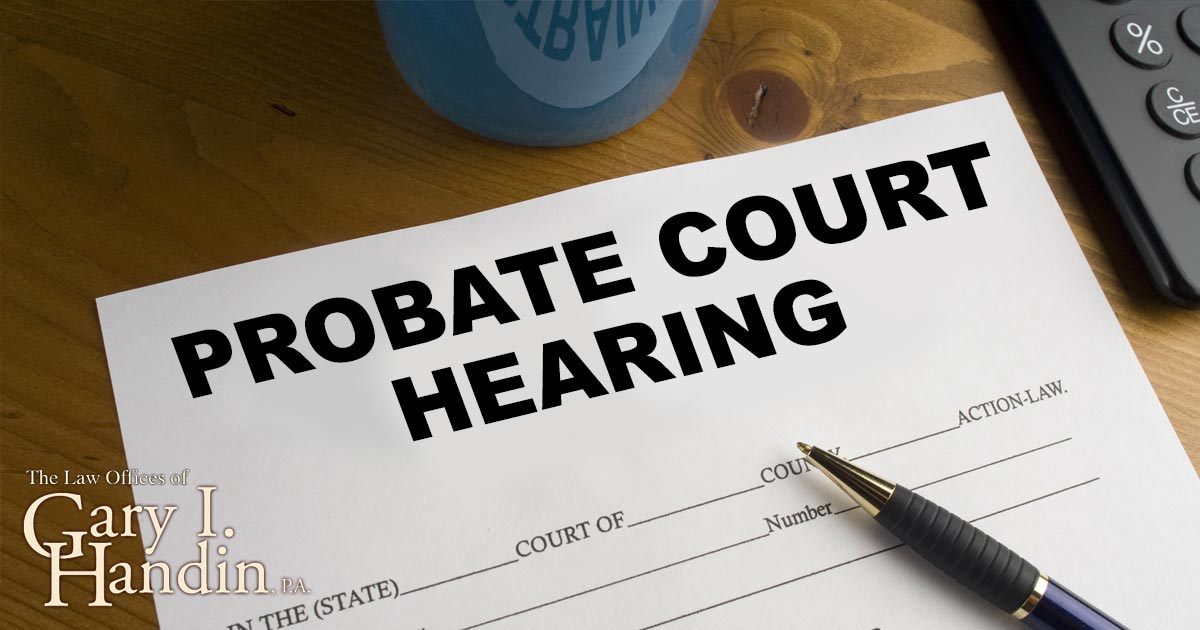
Probate court is the process of transferring a deceased person’s property and assets to those inheriting them. It can be confusing, expensive, and last for an extended period of time. That’s why avoiding it makes an already incredibly draining process, less stressful and the good thing is that it’s easy to avoid probate in most circumstances.
Unfortunately, controversies and fights are common after a loved one dies. Florida probate lawyers see emotionally heated arguments over property all of the time because of the state’s large population of senior citizens. An experienced attorney can negotiate settlements if disputes can’t be negated. However, there are some ways to avoid probate.
Don’t Keep Florida Property
If you’re not a resident of Florida but own property there like a house, you can avoid ancillary probate in Florida by simply getting rid of it. If you don’t own any property in Florida then there won’t be anything probated there. You could even gift your real estate in Florida to other beneficiaries like your children. This helps lower the total value of your estate and helps you sidestep probate.
Think About Joint Ownership
If the property you own in Florida is shared as a joint tenant with rights of survivorship ownership with someone else, then adding survivors’ rights ensures that the property automatically transfers to the other owner when one of them dies. You can do this with bank accounts, house deeds, and investments and completely sidestep probate. Tenancy by the entirety is another way to establish survivorship but its only available for spouses in Florida.
There is also a designation called payable-on-death for certificates of deposit or savings accounts. At your death, they can claim the money, but they have no rights to it before you die. You can also register a transfer-on-death beneficiary for bonds and stocks that they automatically inherit upon your death. However, the state of Florida does not allow transfer-on-death real estate deeds or vehicle registrations.
There are some downsides to joint ownership. Many times, joint owner additions are considered taxable gifts and must be recorded with the IRS on a specific gift tax form (Form 709). In case of a divorce between joint owners or if one gets sued, joint assets can be taken by either spouse or a judgment creditor. If you’re the survivor of joint property, 50 percent or all of that account can be included in the deceased person’s estate for tax purposes.
A Living Trust
Another way to avoid probate in Florida is a revocable living trust. This type of trust covers three main phases in your life; while you are alive, after your death, and if you’re ever mentally incapacitated. It’s essentially used as a tool to plan your estate and keep it private since the plan keeps your wishes out of the state’s public court records.
Signing the living trust doesn’t keep your property out of probate court on its own, after it’s signed you must take all of your assets and label them in your trust, known as funding the Trust. Any assets left outside of the living trust will still need to be probated.
Final Thoughts
When family members contest a will, or there is a probate lawsuit, you need an attorney experienced in probate law to negotiate a settlement. There may even be occasions when a full lawsuit is the only negotiation method possible. Any number of problems can arise like someone may place themselves in the trust or will improperly, or they may refuse to negotiate fairly.
A probate lawyer may need to file a lawsuit for any number of reasons to have a gift or inheritance protected or returned for fair negotiations. A lawyer may need to challenge whether a person voluntarily and freely created a will or if they were mentally capable of making these decisions. Avoiding probate is definitely the best choice if at all possible.





